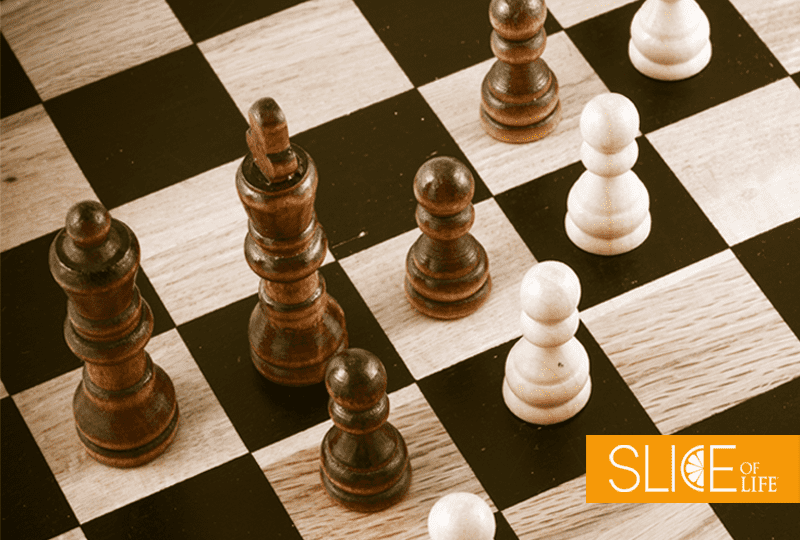Failure of any kind can be hard to swallow. Getting overlooked for a new job can make you question your own skills; getting turned down for a date can make you insecure; even losing a video game online to a complete stranger has been known to make people throw their controller at the TV. The thing is, except in truly the most unfair of circumstances, our failures have something to teach us about our approach to the world and how we maintain our emotions. What makes this tricky is that working on your emotions is particularly difficult when you are disappointed, but it is something for which you can prepare. In fact, our blog has already looked at how you can find ways of preparing for stress outside of a stressful situation, and this post goes very much hand-in-hand with that one.
Let’s take a fairly low-stakes example: playing a game of chess. Now, the purpose is that if you and I are playing, we each have the exact same pieces and (with the slight distinction of black and white) we have an equal beginning position; I will try to preempt your moves in the same way that you are trying to cut me off from achieving my goal. This means that, especially if we are playing on a computer, it is very easy to go back and revisit a game move-by-move whether you won or lost. Of course, this level of replay is not available for things like job interviews or trying to impress people at a party, but that does help with the metaphor. In fact, if you poke around in the chess community, you will find people who place significantly different emphasis on games they won and games they lost—this difference is far from an emotional one; it has to do with learning from different situations. Whether we are considering football, poker or chess, holding a lead requires a very different approach than trying to recover from a deficit. This is true of situations in real life that aren’t strictly competitive either. A tough course in your favorite subject is a far different challenge than an introductory course in something that really challenges you. Taking on job interviews for a field you are trying to break into is a vastly different experience than convincing your boss that your years of experience deserve a raise even if you end up pointing to all of your same strengths in each conversation. The point is to keep this in mind going into these challenges: beyond thinking of things in black and white odds of how likely you are to succeed, always try to keep a broader perspective beyond simply what you stand to gain or lose. Should you consider yourself a beginner or experienced in this situation? What might have worked this time, and what seemed like a bit of a fluke? Beyond simply giving you a more even emotional response to both good times and bad, this primes us to learn from each situation by considering ourselves as part of the larger context.
Again, this isn’t meant to be a plea for people just to show better sportsmanship (in success or in failure), but to consider any failure as at least some moment for metacognition. That looks like a fancy word but it’s quite simple. The prefix “meta” means roughly “about itself,” so if a book is described as “metafiction” that means it is probably in some way a story about stories. Cognition simply means any mental act such as remembering, reasoning or imagining, so “metacognition” is thinking about your own thought processes. Any time you jump to a conclusion or end up managing your time poorly or don’t pay enough attention to the recipe, try to hold yourself accountable, not in the sense of beating yourself up about it, but by trying to pinpoint what it is about your habits or patterns of reasoning that lead to the mistake.
All of this means that learning from failure requires you to assess and reflect on moments of failure rather than deny or avoid those memories. Secondly, it requires some measure of emotional control as disappointment is inevitable, yet it isn’t something to wallow in. And finally, it requires you to assess as clearly as you can what caused your failure: Lack of preparation? Didn’t have the right supplies? Was your opponent more skilled or experienced? Were you just hungry at the time? Any of these can lead you to conclusions about how to reapply yourself next time in a way that allows us not only to learn from our mistakes, but also to actually feel more confident the next time you take on the same challenge. Best of luck!


Social Media